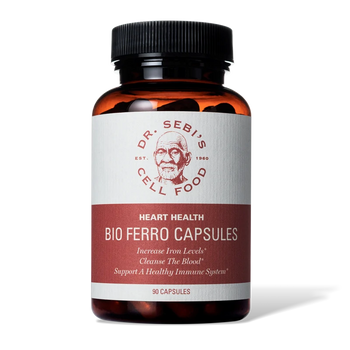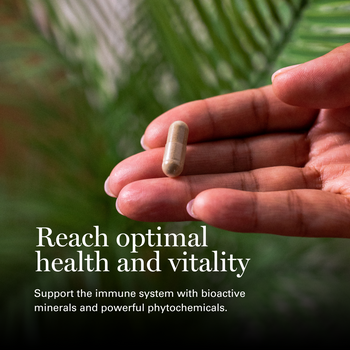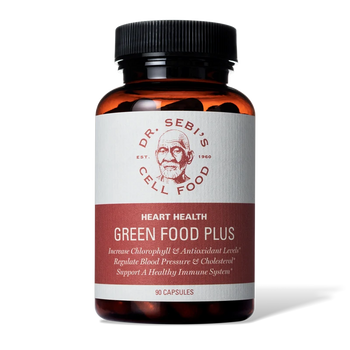Staying committed to the alkaline lifestyle at home is one thing—but what happens when you hit the road? Airports, hotels, gas stations, and restaurants rarely cater to plant-based, non-hybrid, mucus-free eating.
Yet Dr. Sebi often reminded his followers that your health should travel with you. His message was never about perfection, but consistency. Whether you’re traveling for work or leisure, it’s entirely possible to stay aligned with the principles of the African Bio-Mineral Balance.
This article explores how to prepare, adapt, and make smart choices while traveling—so your alkaline foundation stays strong, no matter where you are.
The Travel Challenge
Modern travel runs on convenience: packaged snacks, processed meals, and caffeine. These are the very things that create acidity in the blood and slow digestion. Time zones, dehydration, and poor sleep add even more stress to the system.
The good news? With a little preparation and awareness, you can travel alkaline—staying energized, hydrated, and balanced without sacrificing enjoyment or practicality.
Dr. Sebi’s Core Principles—Simplified for Travel
Before we look at practical strategies, let’s revisit the basics of the Sebi approach, because they don’t change when you’re on the road:
-
Avoid mucus-forming foods. Eliminate dairy, meat, eggs, processed grains, and hybrid starches.
-
Eat living, mineral-rich foods. Choose raw fruits, greens, grains, and herbs that restore cellular energy.
-
Hydrate with natural water. Spring water is the best—avoid filtered, chlorinated, or fluoridated sources as much as possible.
-
Use herbs to support cleansing. Burdock, dandelion, sea moss, and elderberry travel well as teas or powders.
-
Stay calm and rested. Stress acidifies the body faster than food; stillness is part of alkalinity.
These five pillars remain your compass—no matter your destination.
Pre-Trip Preparation: The Key to Staying Alkaline
1. Plan Ahead
Research your destination before you go:
-
Search for local markets, juice bars, or vegan-friendly cafes.
-
Look for “farmers' markets near me” on Google Maps once you arrive.
-
Book accommodations with a small kitchenette if possible.
2. Pack the Essentials
Carry a “travel alkaline kit.” It can fit easily in your bag:
-
Small bag of your essential supplements, think Bromide, Green Food, Viento.
-
Dried herbs, tea bags are the most efficient for the road.
-
Reusable thermos
-
Hemp or spelt crackers, dried fruit, seeded grapes, walnuts, or figs
-
Small bottle of olive oil and sea salt
-
Reusable water bottle for refilling spring or alkaline water
If you have access to boiling water, you can make teas and tonics anywhere—airport lounges, hotel rooms, or even the plane.
3. Prepare Your Body Before You Leave
In the 2–3 days before traveling:
-
Eat lightly and hydrate deeply.
-
Avoid heavy or acidic meals that cause mucus buildup.
-
Sleep well to minimize stress during transit.
Arriving already balanced makes travel far easier on the system.
Alkaline Eating While Traveling
At the Airport or On the Road
Airports and rest stops aren’t ideal for clean food, but you can still make good choices:
-
Choose fruit cups (check for seeded fruits like apples, grapes, or mango).
-
Look for salads with olive oil and sea salt instead of processed dressings.
-
Pack your own trail mix (walnuts, dried figs, dates).
-
Drink spring water instead of soda or bottled “alkaline” brands with additives.
-
Avoid coffee; sip warm herbal tea instead.
If you’re flying long distances, fast lightly—your digestive system struggles to process heavy food while sitting for hours. Not to mention, you won't be stuck using the cramped restrooms as often.
At Hotels or Accommodations
-
Try booking a room with a mini fridge to store fruit, herbs, or drinks.
-
Request hot water for your tea each morning.
-
Keep breakfast simple: fresh fruit, smoothies, or porridge made with spelt or quinoa flakes if available.
-
When dining out, order vegetable-based dishes—grilled squash, avocado salad, or steamed greens.
Most kitchens can accommodate simple requests if you ask politely and explain you’re avoiding dairy or processed oils.
At Restaurants Abroad
Many cuisines naturally include alkaline-friendly ingredients—you just have to know what to look for:
|
Region |
Alkaline-Friendly Choices |
|
Caribbean |
Callaloo (amaranth greens), avocado, okra, coconut-based dishes. |
|
Latin America |
Quinoa bowls, izote, mango, papaya, key lime water, salads, veggies. |
|
Mediterranean |
Olives, cucumbers, chickpea salads (without vinegar), grilled veggies. |
|
Africa |
Watercress salads, steamed greens, fonio or teff-based dishes. |
|
Asia |
Stir-fried vegetables, seaweed soups, fresh fruit, herbal teas. |
When unsure, stick to the “three pillars”: greens, grains, and good oils.
Hydration: The Travel Essential
Flying, heat, and altitude quickly dehydrate the body, leading to fatigue and brain fog. Dr. Sebi emphasized that dehydration thickens the blood, reduces oxygen flow, and makes cleansing harder.
Tips:
-
Bring a refillable glass or stainless steel bottle—fill it with spring water at every stop.
-
Add key lime or cucumber slices with a pinch of salt for natural electrolytes.
-
Avoid alcohol, coffee, and sugary drinks.
-
Drink one full glass of water for every hour in flight.
Proper hydration alone can prevent 70% of travel-related fatigue.
Managing Jet Lag and Energy Naturally
Travel disrupts your circadian rhythm—the body’s internal clock that regulates energy and digestion. Instead of reaching for caffeine, rely on alkalizing, oxygen-rich habits:
-
Hydrate first thing in the morning.
-
Stretch or walk barefoot on natural ground if possible to reset your body clock (earthing). A small patch of grass or sand are ideal.
-
Drink ginger or sea moss tea to support circulation and thyroid balance.
-
Get natural sunlight during the day.
-
Rest early and avoid heavy meals late at night.
By keeping your blood clean and oxygenated, your body adjusts faster to new time zones.
Staying Consistent on the Move
1. Simplify Your Choices
You don’t need 20 ingredients per meal. Stick to the essentials:
-
Morning: fruit + tea.
-
Midday: greens + quinoa + avocado.
-
Evening: soup + herbal tea.
Consistency is more important than variety when traveling.
2. Eat for Energy, Not Entertainment
When traveling, we’re surrounded by new flavors and indulgences. Dr. Sebi warned that taste addiction can easily override body intelligence. Pause before eating and ask, “Is this food giving me life or taking it away?”
3. Make Herbs Your Daily Ritual
Herbal teas are portable and grounding. Even one daily cup of burdock or dandelion maintains cleansing during travel.
4. Stay Calm
Stress is acid-forming. Practice patience with yourself and your surroundings. Listen to music, meditate, or spend time in nature to maintain your internal alkalinity.
3-Day Travel Survival Menu
Day 1 – In Transit
-
Morning: Key lime water, fruit (grapes, apple), sea moss capsules (Bromide Plus).
-
Midday: Quinoa salad with avocado and cucumber.
-
Evening: Steamed greens or vegetable soup; chamomile tea.
Day 2 – Arrival
-
Morning: Warm water with key lime; fruit bowl.
-
Midday: Amaranth or kale salad with olive oil.
-
Evening: Squash and quinoa; burdock tea.
Day 3 – Exploration Day
-
Morning: Fruit smoothie, add dates and wild blueberries if possible.
-
Midday: Local produce or simple grain bowl.
-
Evening: Steamed greens; tila tea before bed.
This keeps your meals simple, portable, and balanced—no compromise necessary.
Staying Alkaline on the Road: Practical Hacks
-
Carry your own seasonings. A tiny pouch of sea salt, cayenne, and oregano transforms any bland meal.
-
Request fruit baskets at hotels instead of pastries.
-
Search “vegan grocery store near me.” Most cities have at least a Whole Foods or an international supermarket.
-
Book near nature. Walking outdoors supports oxygenation and stress relief.
-
Fast lightly between flights. It lets digestion rest and keeps you feeling clean.
-
Bring herbal capsules. Sea moss in capsule form is perfect for short trips.
-
Prioritize rest. Fatigue leads to cravings—sleep prevents temptation.
What to Do When You Slip
Even with preparation, travel can throw surprises. Maybe you eat something processed or acidic out of convenience. Don’t panic. The alkaline lifestyle is about balance, not guilt.
If you slip:
-
Hydrate immediately with spring water or cucumber juice, a fresh coconut works well.
-
Drink burdock or ginger tea to help process the meal.
-
Fast lightly for the next 12 hours. Give your body space to recover.
-
Recommit at the next meal. One misstep won’t undo your foundation.
Herbs That Travel Well
-
Burdock Root: Blood purifier; balances skin and energy.
-
Sarsaparilla: Iron-rich tonic for stamina.
-
Sea Moss Powder: Replenishes minerals lost through sweat and travel fatigue.
-
Ginger Root: Improves circulation and immunity.
-
Elderberry: Strengthens respiratory health; ideal for flights.
-
Tila or Chamomile: Calms the nervous system and aids rest.
These can be packed as dried teas or capsules and prepared anywhere with hot water.
The Mental Aspect of Traveling Alkaline
Food habits are deeply emotional, especially when we travel and associate new places with indulgence. But staying alkaline doesn’t mean missing out—it means experiencing travel consciously.
-
Focus on connection, culture, and nature rather than overconsumption.
-
Notice how your body feels when you stay clean and hydrated—you’ll have more energy for exploration.
-
Use travel as an opportunity to discover local fruits, herbs, and healing traditions.
The more you see healthy eating as freedom, not restriction, the easier it becomes to maintain anywhere in the world.
FAQs
Q: Can I bring herbs or sea moss through airport security?
A: Yes. Dried herbs and capsules are fine in carry-on; liquids like sea moss gel must be under 3.4 oz or packed in checked luggage.
Q: What if I can’t find water?
A: Choose the cleanest available—spring or mineral water from natural sources. Avoid “ionized” or artificially alkalized brands.
Q: Can I eat airplane meals?
A: Most are acidic. Pack your own fruit, nuts, or ask for simple salads. Herbal tea sachets are travel-friendly.
Q: How do I maintain consistency on long trips?
A: Focus on your non-negotiables—hydration, daily herbs, and avoiding dairy and meat. Consistency beats perfection.
Q: Will one week of travel ruin my progress?
A: Not at all. Your foundation is internal. As long as you return to your alkaline rhythm, your body quickly resets.
Dr. Sebi’s Perspective on Mobility and Discipline
Dr. Sebi lived and traveled across continents—from Honduras to the U.S. to Africa—while maintaining his healing principles. He taught that discipline is freedom, not control.
You can’t lose balance when you carry nature with you.
He encouraged people to keep things simple: clean water, fresh fruit, herbal tea, and rest. The body thrives on consistency—not luxury.
To him, the alkaline way of life wasn’t about geography; it was about frequency. You bring it with you wherever you go.
Conclusion
Travel doesn’t have to derail your health—it can strengthen your commitment to it. With a bit of preparation, self-awareness, and the right mindset, you can stay true to Dr. Sebi’s alkaline lifestyle anywhere in the world.
Pack your herbs, hydrate often, choose simplicity over convenience, and remember that the body’s natural intelligence doesn’t take vacations—it only asks for consistency.
Every destination offers something that supports your journey—whether it’s sunlight, fruit, rest, or perspective. Stay grounded, stay mineralized, and travel electric.
Wherever you go, your cells go too—feed them what they recognize.

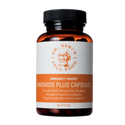


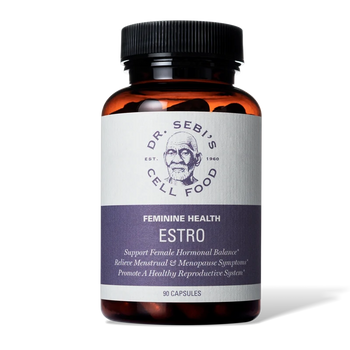

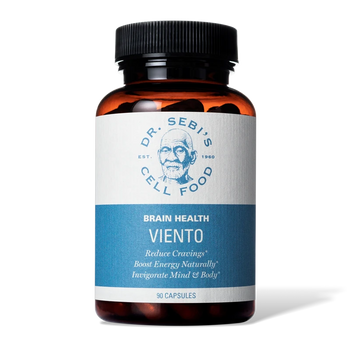

 Liquid error (snippets/card-product line 54): invalid url input
Liquid error (snippets/card-product line 54): invalid url input
